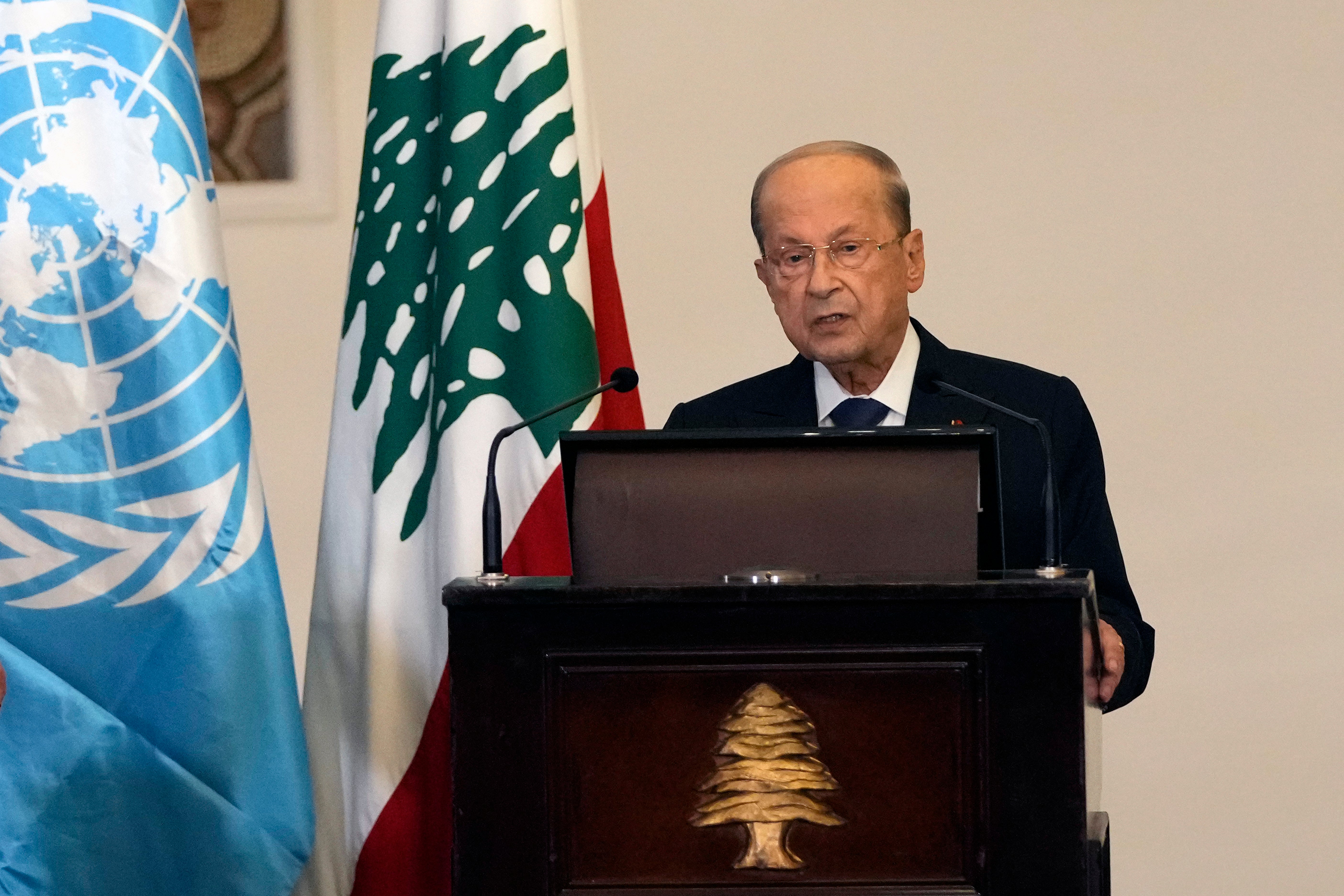Lebanon's president calls for an end to government paralysis
Lebanon’s president has called for an end to an 11-week deadlock that has prevented the government from convening, further undermining state institutions in the country amid an economic meltdown

Your support helps us to tell the story
From reproductive rights to climate change to Big Tech, The Independent is on the ground when the story is developing. Whether it's investigating the financials of Elon Musk's pro-Trump PAC or producing our latest documentary, 'The A Word', which shines a light on the American women fighting for reproductive rights, we know how important it is to parse out the facts from the messaging.
At such a critical moment in US history, we need reporters on the ground. Your donation allows us to keep sending journalists to speak to both sides of the story.
The Independent is trusted by Americans across the entire political spectrum. And unlike many other quality news outlets, we choose not to lock Americans out of our reporting and analysis with paywalls. We believe quality journalism should be available to everyone, paid for by those who can afford it.
Your support makes all the difference.Lebanon’s president called Monday for an end to an 11-week deadlock that has prevented the government from convening, further undermining state institutions in the country amid an economic meltdown.
President Michel Aoun implicitly blamed his powerful ally Hezbollah for preventing the government from convening but didn’t name the Shiite group.
During an evening televised speech, Aoun also listed a litany of other obstructions that have derailed necessary legislation and reforms, criticizing his longtime rival Parliament Speaker Nabih Berri but also without naming him.
The government of Prime Minister Najib Mikati has not been able to meet since Oct. 12 after Hezbollah and allies demanded the removal of the lead judge investigating the massive explosion at the Beirut port last year. Hezbollah accuses the judge of bias and its allies in government refused to attend Cabinet meetings until the government finds a way to remove him.
Aoun said he has been unfairly criticized and his authority undermined while he can’t even force the Cabinet to convene.
“Paralyzing state institutions has become a standard and the result is the destruction of the state,” Aoun said. “In what law, logic or constitution is the Cabinet obstructed and asked to make a decision that is not part of its authority?”
Aoun said the government must meet as soon as possible to address outstanding problems.
Mikati took office in September following another deadlock over the balance of power in government that was to govern amid the crisis. The political class has also been divided over reform plans, negotiations with the International Monetary Fund and regional relations.
Aoun, Hezbollah’s favorite candidate, was elected president in 2016 filling a post that had been vacant for more than two years. The Aoun-Hezbollah alliance was sealed in 2006 after his return from exile following the end of Lebanon’s civil war. Since taking office, the alliance has been tested as Aoun had to tackle an unprecedented economic crisis, wading through Lebanon’s often divisive sectarian-based politics.
His speech Monday expressed frustration at the powerful ally, also questioning the purpose of creating tension with Gulf nations. Saudi Arabia, followed by other Gulf nations, boycotted Lebanon in October following critical comments by a minister allied with Hezbollah. The minister refused to resign for weeks.
But Aoun, a former army general, stopped short of calling out Hezbollah publicly, indicating the alliance was holding. Aoun is in the last year of his six-year term.
Lebanon is in the throes of an economic crisis described as one of the worst in the world in the last 150 years. International financial institutions call it a deliberate depression blaming the political elite, in power for decades, of mismanaging the country’s resources.